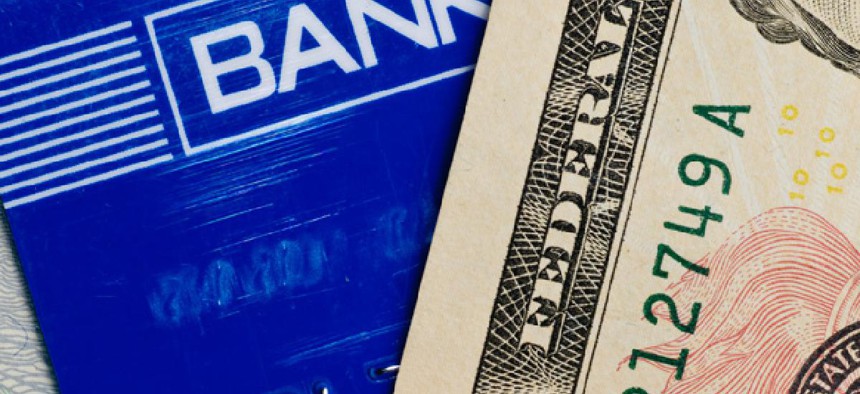
PhotoXpress
Consumer Financial Protection Bureau draws ire from allies
Proposed rule on upfront credit card fees seen as cave-in to banks.
Accustomed to attacks from congressional Republicans who opposed its creation, the Consumer Financial Protection now finds itself at odds with some in the consumer advocacy community over a new rule on credit card fees.
On Thursday, CFPB requested public comment on a proposed rule regarding fees credit card issuers could require a consumer to pay before opening an account.
Under the 2009 Credit Card Accountability, Responsibility and Disclosure Act, certain fees charged during the first year after an account is opened were capped at 25 percent of the account’s initial credit limit. In April 2011, the Federal Reserve Board extended this cap to include fees a consumer could pay before opening an account, such as an application fee.
In 2011, a U.S. district court in South Dakota moved to block the expanded rule, saying the Credit CARD Act didn’t intend to cap upfront fees. CFBP now seeks comment on whether it should amend the rule to conform to the injunction by stripping back the cap on upfront fees.
After CFBP announced its proposed rule change Thursday, a group of four consumer groups that call upfront fees for opening a credit card accounts “fee harvesting” issued statements urging CFPB to “stay strong” against efforts by “predatory lenders” to roll back rules that protect consumers.
They want the bureau to appeal the U.S. district court injunction.
“Charging $170 for a credit card with available credit of $225 is exactly the sort of abuse that the fee-harvester rule should prohibit,” said Chi Chi Wu, an attorney with the National Consumer Law Center. “The CFPB should not back down in protecting consumers from this sort of chicanery.”
Janis Bowdler, director of the Wealth-Building Policy Project at National Council of La Raza, said, “the [Federal reserve] got this issue right, and the CFPB should stay the course.” Also critical were U.S. PIRG and Consumer Action.
A CFPB spokeswoman told Government Executive : "we welcome and want public feedback on our proposal." Comments are due by June 11.
Ed Mierzwinski, consumer program director at U.S. PIRG, told Government Executive, that CFPB “either made a mistake in reading the case, or is being risk-averse. As a new agency, they don’t want to lose in court.” But the ruling by the district court is “an outlier. Our reading is they would win,” he said.
There had been speculation that CFPB was wary during an election year of alienating the banking industry by banning upfront credit card fees. But the possibility of such political motives does not appear to discourage consumer activists. “The CFPB was in a difficult place in light of the district court’s ruling,” said Lauren K. Saunders, managing attorney at the National Consumer Law Center. “We hope that after the comment period is over, they will decide to retain the rule, and we do not question the bureau’s commitment to protecting consumers.”
The dust-up came as the bureau recognizes April as Financial Literacy Month, coordinating with other agencies, businesses and nonprofits to promote financial education. The effort also includes public appearances. On Tuesday, Director Richard Cordray spoke to the Washington office of Operation HOPE, a nonprofit that boosts consumer-level economic know-how in underserved areas to promote coming new rules intended to simplify mortgage servicing.
In a related matter, the Federal Trade Commission on Friday published a final “rescission of rules” in theFederal Register to officially transfer to CFPB rule-making authority for a number of consumer financial protection laws, as called for in the 2010 Dodd-Frank financial reform law.







